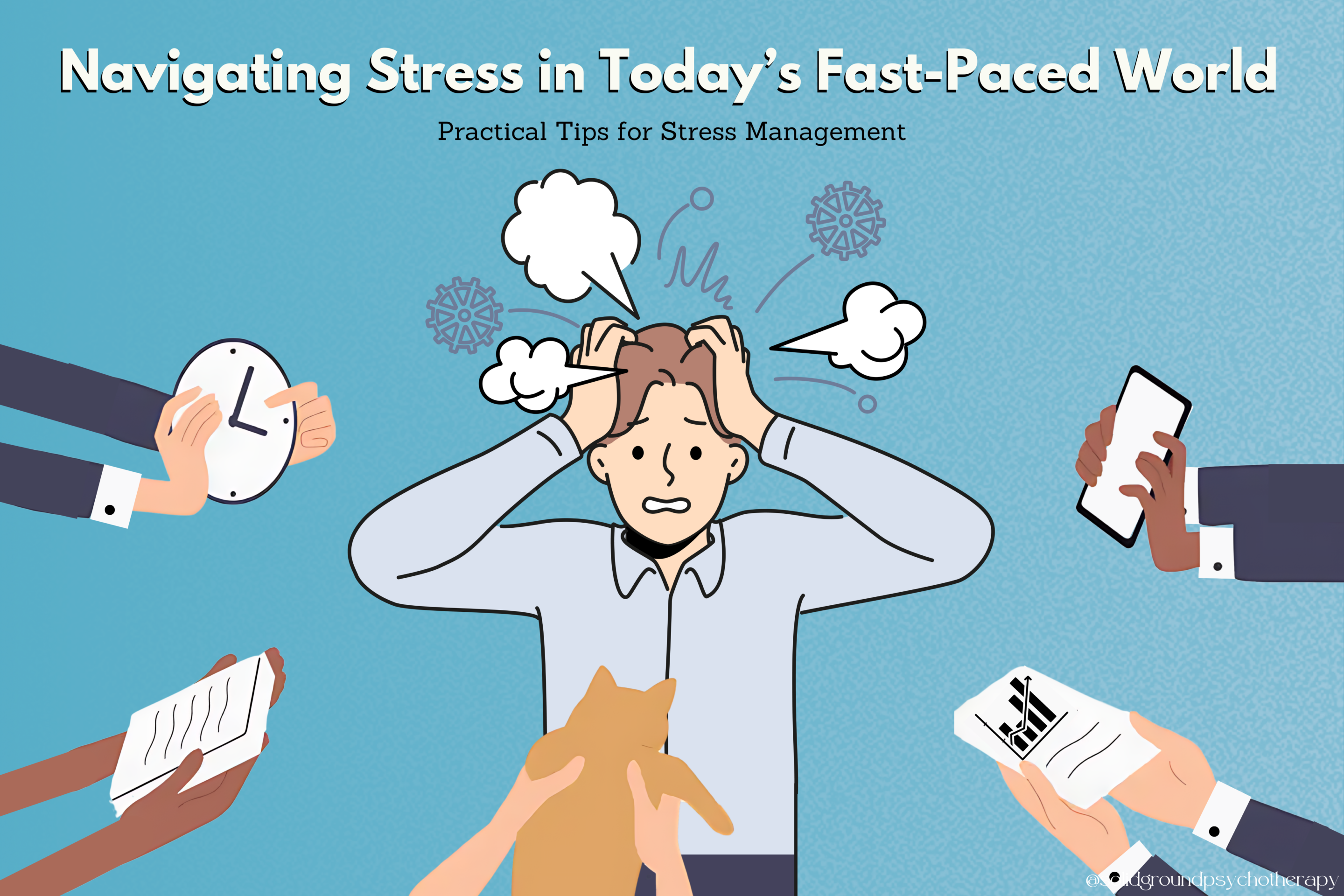provostbariatrics.com – While stress is a natural part of life, it’s essential to take steps to manage it effectively. Here are practical tips tailored to the realities of Millennials and Gen Z:
1. Embrace Mindfulness and Meditation
Mindfulness and meditation are powerful tools for reducing stress. By focusing on the present moment and letting go of worries about the past or future, these practices help create a sense of calm and control.
- How to Get Started: Apps like Headspace, Calm, or Insight Timer offer guided meditations that can fit into even the busiest schedules. Even five minutes a day can make a difference in reducing stress and improving mental clarity.
- Why It Works: Meditation has been shown to reduce cortisol (the stress hormone) and enhance emotional well-being. Regular practice can improve concentration, emotional regulation, and resilience.
2. Set Boundaries with Technology
Constant connectivity via smartphones, social media, and email contributes significantly to stress. Setting boundaries with technology is essential to reclaiming your time and mental peace.
- How to Do It:
- Turn off notifications for apps that are not essential.
- Schedule “phone-free” time to relax or spend time with loved ones.
- Consider a digital detox where you take a break from social media for a few days or weeks to reset your mental state.
- Why It Works: By setting boundaries with technology, you reduce the pressure to stay “always on” and allow your brain to recharge. This helps mitigate anxiety caused by over-stimulation and the constant need for validation through likes and comments.
3. Prioritize Self-Care and Rest
Both Millennials and Gen Z tend to juggle multiple responsibilities—work, social life, and side hustles. It’s easy to neglect self-care, but regular rest and relaxation are critical for maintaining mental health.
- How to Practice Self-Care:
- Get enough sleep: Prioritize quality sleep by setting a regular sleep schedule. Aim for 7-9 hours each night.
- Exercise regularly: Physical activity helps release endorphins, the body’s natural stress relievers.
- Unplug and unwind: Engage in activities that help you relax, such as reading, taking a bath, journaling, or spending time in nature.
- Why It Works: Regular self-care activities promote relaxation, reduce anxiety, and help you feel more centered and capable of managing stress. Taking time for yourself can also improve focus and productivity.
4. Build Healthy Social Connections
Strong, supportive relationships are key to reducing stress. Both Millennials and Gen Z often turn to social media for validation, but real-world connections with friends, family, or supportive communities can provide emotional resilience and a sense of belonging.
- How to Build Supportive Connections:
- Schedule regular check-ins with close friends or family members, even if it’s virtual.
- Join social or interest-based groups (e.g., a book club, fitness group, or professional network) where you can meet like-minded individuals.
- Don’t hesitate to ask for help when needed—whether it’s sharing your stress with a trusted friend or seeking professional support like therapy or counseling.
- Why It Works: Social connections are critical for emotional support, offering a safe space to talk about struggles and reduce feelings of isolation. Positive relationships can provide perspective, encouragement, and motivation during tough times.
5. Focus on What You Can Control
In an age of uncertainty, focusing on things you can control is a powerful stress-busting technique. When things feel out of your control, it’s easy to feel overwhelmed, but redirecting energy toward areas where you can make a difference can bring back a sense of empowerment.
- How to Do It:
- Break down overwhelming tasks into smaller, manageable steps.
- Create short-term goals for areas you can control, like exercise, work tasks, or personal projects.
- Practice acceptance when dealing with things beyond your control, such as economic instability or world events.
- Why It Works: By taking small actions toward goals that matter to you, you regain a sense of control and accomplishment. This can help reduce the anxiety that stems from feeling helpless or out of touch with your own life.
6. Seek Professional Help When Needed
If stress becomes overwhelming, seeking professional help is crucial. Therapy, counseling, or even a life coach can provide valuable tools for managing stress, developing coping strategies, and improving mental health.
- How to Access Help:
- Many therapists offer virtual counseling options, making it easier to fit into a busy schedule.
- Apps like BetterHelp or Talkspace provide accessible, online therapy services.
- Why It Works: Professionals can offer objective insight, coping strategies, and emotional support. Therapy can be an essential part of stress management, especially for tackling chronic stress or anxiety.
Conclusion
Millennials and Gen Z are navigating an era filled with unique challenges—economic uncertainty, constant digital connections, and societal pressures. However, by implementing strategies like mindfulness, setting technology boundaries, practicing self-care, nurturing social relationships, and focusing on what can be controlled, both generations can better manage stress and foster mental well-being. Most importantly, it’s essential to remember that seeking support, whether from loved ones or professionals, is a vital part of the process.
Stress will always be a part of life, but with the right tools and mindset, Millennials and Gen Z can learn to navigate it with greater ease, resilience, and peace of mind.






